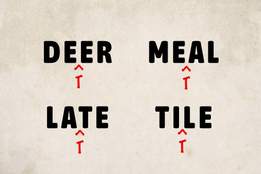ev·i·dence
ˈe-və-dən(t)s 

-və-ˌden(t)s
1
a
: an outward sign : indication
b
: something that furnishes proof : testimony
specifically
: something legally submitted to a tribunal to ascertain the truth of a matter
2
: one who bears witness
especially
: one who voluntarily confesses a crime and testifies for the prosecution against one's accomplices
Love words? Need even more definitions?
Merriam-Webster unabridged










Share